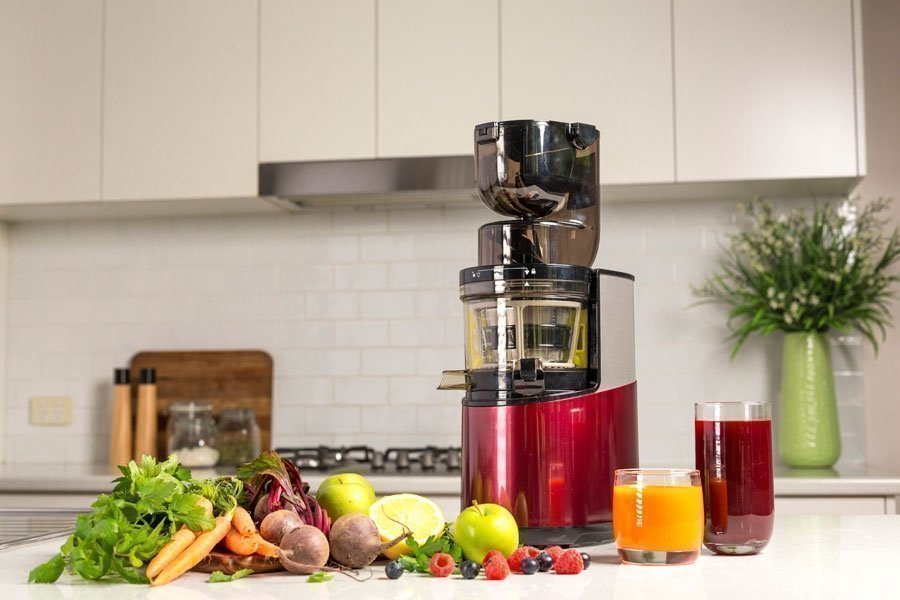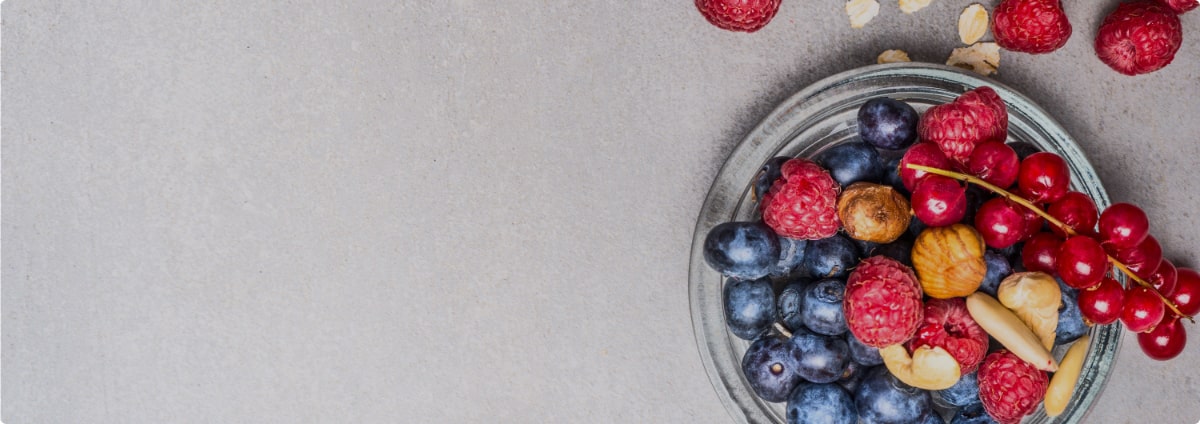Vitality 4 Life uses cookies to provide and improve our services, if you continue browsing, we consider that you accept its use. For more information, please see our privacy page.
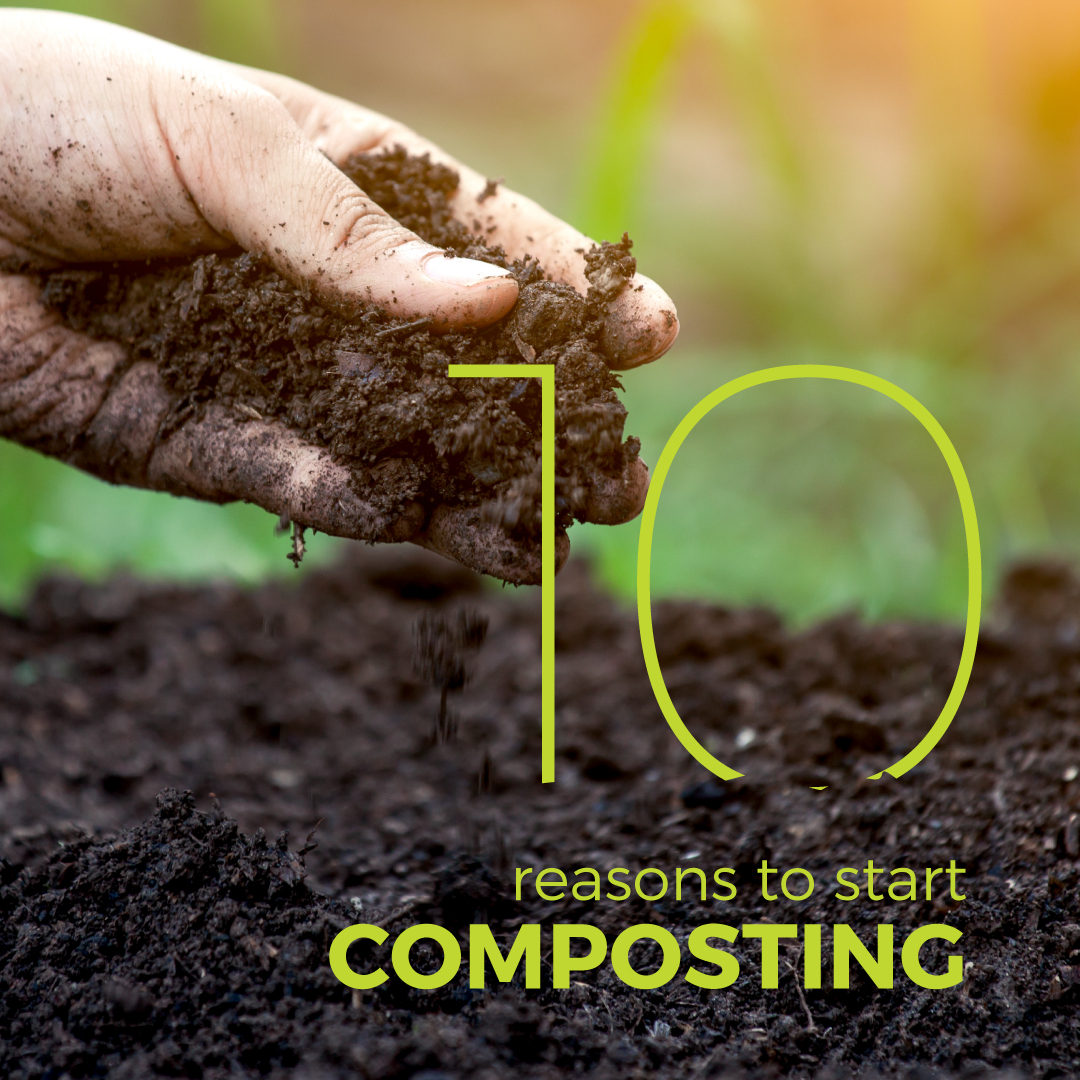
Top 10 Benefits of Composting
Understanding the value of finished compost is one of the best ways to get into composting.
Often referred to as “Black Gold” by organic gardeners, it’s relatively easy to make, virtually free and good for the environment. So why wouldn't you want to do it?
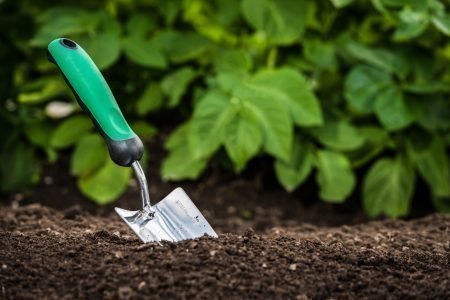 We have compiled our top 10 reasons to start composting today. But first, let’s learn a little bit more about what compost is.
We have compiled our top 10 reasons to start composting today. But first, let’s learn a little bit more about what compost is.
What is Compost?
In its simplest form, compost is produced by the natural decomposition of organic waste which can take anywhere from a couple of weeks to a few months depending on the size and mix. Composting is a natural process that turns organic matter into a dark, rich substance as organisms begin to decompose the organic material. Organic matter includes but is not limited to garden waste, kitchen scraps, leaves, grass clippings, paper, cardboard and straw.
Compost and organic matter are a valuable soil addition as they can improve soil structure, aid in necessary microbial activity within the soil, attract good bugs such as earthworms, and can suppress several soil-born diseases.
An important note to remember is that you can never add too much compost into your soil. Good compost is the colour of dark chocolate and should smell earthy.
So now that you know what compost actually is, below are our top 10 reasons why you may want to give composting a go - at home or in your place or business.
10 Reasons to Compost
1. It's Good for the Environment!
About half of what we throw into the garbage bin is organic food and garden vegetation and can be recycled through composting.
By doing this you are not only reducing the amount of waste that goes into landfill, but you are also helping to protect the environment by reducing greenhouse emissions along with your carbon footprint.
Note: When organic waste ends up in landfill, it decomposes without oxygen and produces methane and carbon dioxide – both of which contribute to Global Warming.
2. Turn Your Trash into Treasure
Organic gardeners often call compost “Black Gold”, and for good reason! It is rich in nutrients and minerals that will help your garden thrive and is made purely from organic waste product which would have previously ended up in the bin.
Composting forms an integral part of the sustainable garden food chain. From the garden to the plate and back to the garden again!
3. Compost Helps Your Garden to Retain Nutrients & Water
Compost is a nutrient rich fertilizer that helps soil retain water. It also improves soil aeration by creating air pockets between soil clusters. Thus, creating the most optimal environment for plants to thrive and flourish.
4. It Will Save You Money
It’s economical. You probably already have all the things you need to make compost at home, and you’ll save money in the long run by not having to buy soil and plant food. By using the compost that you have made as a soil conditioner or mulch, this will reduce the need to purchase these products which can lead to significant savings.
5. No Need for Chemicals
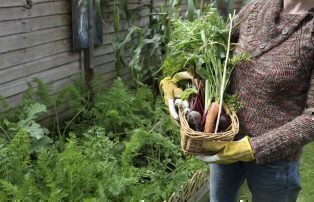 Compost is essential if you are wanting to create an organic garden. No longer do you need to be concerned about what is in the mulch, fertilizers or sprays that you are using on your garden.
Compost is essential if you are wanting to create an organic garden. No longer do you need to be concerned about what is in the mulch, fertilizers or sprays that you are using on your garden.
When making your own compost, you eliminate the need for chemicals, additives and Sulphur’s - and more organic compost means less chemicals which equates to a cleaner, healthier environment.
6. Compost as an Organic Pesticide
Compost tea is the water extract of compost - which can be brewed in various ways and is most recently being used as a disease inhibitor in your garden – and is great for disease and pest control in your garden.
Most people are trying to move away from conventional pesticides and this is a great natural alternative to them.
7. Composting Creates Biodiversity
From birds to bacteria, to insects and worms, compost is rich in the nutrients needed for mother nature’s creatures.
When there are more life forms in the soil, plants grow healthier and happier. Watch as your garden transforms itself into a living organism complete with worms and little creatures all helping the process.
8. Composting is Convenient
No need to bag your leaves and other garden waste to fill up your bin, or take them to the tip. Add them to your composter and watch them turn into compost!
9. Every Bit Helps
We generate 21.5 million tons of food waste each year. If we composted that food, it would reduce the same amount of greenhouse gas as taking 2 million cars off the road!
10. It's Fun!
Ok, maybe rewarding is a better word. When you compost you are more aware of garbage and waste in general. Doing your bit to minimise waste and to watch as you turn your "trash into treasure" is incredibly satisfying and rewarding!
Why Use a Composter?
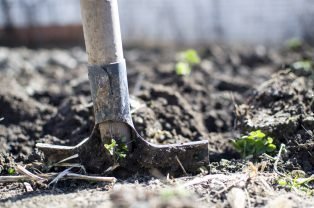 Composting, described as nature’s way of recycling is the biological process of breaking up organic waste into an extremely useful end product. Although this process is completely natural, a rotating compost bin is a very efficient way of making this happen as it allows you to control the four factors that affect the speed of decay. Being able to manage the below four factors enables the naturally slow process of decay, to be sped up so that you can have nutrient-rich compost in as little as six weeks!
Composting, described as nature’s way of recycling is the biological process of breaking up organic waste into an extremely useful end product. Although this process is completely natural, a rotating compost bin is a very efficient way of making this happen as it allows you to control the four factors that affect the speed of decay. Being able to manage the below four factors enables the naturally slow process of decay, to be sped up so that you can have nutrient-rich compost in as little as six weeks!
Air Flow
Air circulation is a key factor. Keeping your compost well mixed and aerated prevents those anaerobic bacteria from establishing and making your compost stinky.
Temperature/Insulation
Temperature also plays a very important part in the breakdown of your compost. Helpful microbes work best at higher temperatures so it’s important to keep their workplace warm. The fastest break down will occur between 50 – 70 degrees Celsius. If you live in a very hot area you may need to place your composter in a shady area so that decomposition does not happen too quickly.
Moisture
Moisture can be tricky. Stagnant water can suffocate good bacteria, it also attracts pests and bugs. You will need to ensure adequate drainage and avoid adding in liquids to your composter as it can be difficult to get the right consistency. The general rule of thumb is that your compost mix should be as moist as a wrung out damp sponge.
Good Mix of Ingredients
Your ingredients are vital. There needs to be a good balance between the “brown stuff” which is the carbon rich materials and the “green stuff” which are the nitrogen rich materials, too much of either one will produce a poor result. A good rule of thumb is ¾ “brown stuff’ such as leaves, straw, saw dust, shredded paper or wood pellets and ¼ “green stuff” such as vegetable and fruit scraps, coffee grounds, grass clippings and kitchen scraps.
Note: “brown” and “green” don’t refer to the colour of the items you are putting into your composter either. It’s referring to carbon rich or nitrogen rich materials.
Start Composting Today!
Simply being conscious of our waste habits can make a real difference to the environment and the future. By swapping our wasteful habits for a more sustainable approach we can all play a better part in bringing about considerable changes in the environment.
By starting your composting journey today, what can seem like an inconvenience will soon become second nature and you won’t even need to think about it. It’s easy, rewarding and satisfying knowing that you are not only helping your garden flourish but you are also contributing to the bigger picture. So, start saving your scraps today!
OUR BEST ROTATING COMPOSTERS
Vitality 4 Life distribute what we regard to be the finest composter range in the world. The brand Joraform are highly regarded as the "Rolls Royce" of composters, consisting of separated internal chambers and high quality steel structure.
[product id="1227"]
[product id="1226"]










